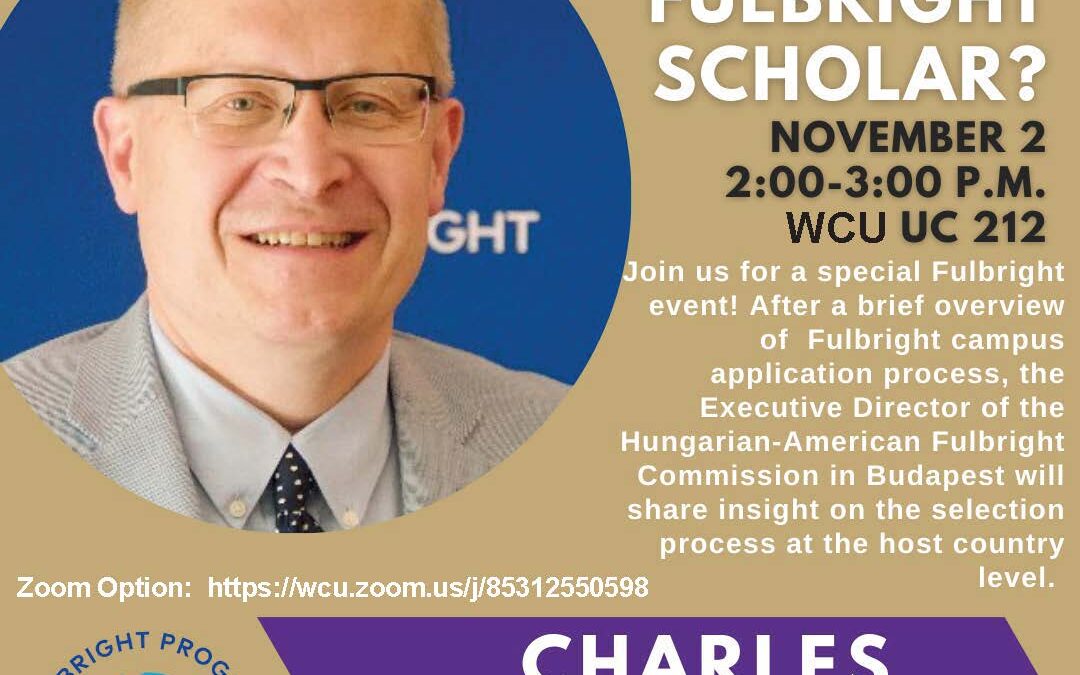On Thursday, November 2, the NC Chapter of the Fulbright Association along with Western Carolina University hosted the Executive Director of the Hungarian-American Fulbright Commission, Dr. Charles Jókay. Held both in-person and over Zoom, this event offered an opportunity for attendees to gain insights into the selection process for a Fulbright Scholar award at the host country level.
We are pleased to share the slides used during this event for download. Please note that Dr. Jókay has provided his email address on the opening slide and welcomes inquiries about the Fulbright application process.
At the conclusion of the event, Dr. Jókay discussed the following points in a Q&A session, noting that these remarks apply to the case of applications to Hungary, while the situation in other countries may be different:
- After scholars are recommended by the first round of peer reviews in the Fulbright selection process, the Hungarian commission gets the short-list near Christmas time. They typically try to select the scholars in several weeks, and then IEE will notify the awardees later (could be in late Feb).
- If there are several people who have applied for the same institution, the commission will let the host institution make their choice.
- The Hungarian commission makes selections based on the best match between the candidates and the host institutions, within the context of the Hungarian culture, needs, etc.
- If everything seems equal for some candidates, the commission tries to recommend candidates from different disciplines and from a wide spread of areas to represent all regions in the U.S., and promoting first-gen, etc.
- Retiree applicants are viewed in terms of what they can contribute to the region. The Hungarian commission regards the Fulbright award not as an award for a well-respected career, but more as a matching between the scholar’s expertise and regional needs.

